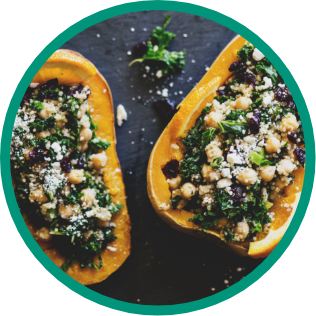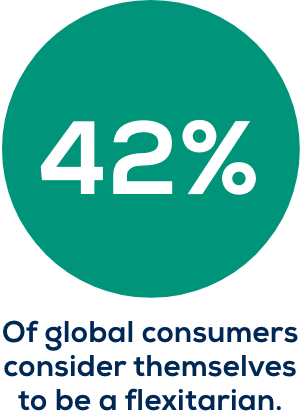Plant-based diets have risen in popularity in recent years as sustainability of food products has become a serious part of the decision-making process for most consumers. Taste, cost, convenience and health remain some of the major motivators behind a person’s food and beverage selection, and a 2019 study by the International Food Information Council (IFIC) ranked sustainability fifth among food-purchase drivers.
Multiple studies show that this trend will only grow over the next decade.
Another 2019 study revealed the “growing expectation for sustainable models, with Generation Z making more shopping decisions based on sustainable retail practices than even Millennials and Generation X.” One Forbes story pointed to how the passage of only a couple generations has completely shifted how people think about sustainable goods — 62% of Generation Z preferred to buy from sustainable brands while over half of Generation Z (54%) and Millennials (50%) are willing to spend an incremental 10% or more on sustainable products compared to Generation X (34%) and Baby Boomers (23%).
Food and beverage manufacturers must show a willingness to adapt to this changing demand now or risk being left behind as younger generations latch on to more sustainability-minded brands and commit their loyalty — and buying power — to their products.

Why A Plant-Based Diet?
From a young age, Generation Z and, to a lesser extent, Millennials have been bombarded with messages about the importance of a nutritious diet, as well as the environmental and ethical impacts that more traditional eating habits have had on the planet. They have also watched discussions grow about all types of pro-environment behavior: a lower carbon footprint, less methane emissions, lower greenhouse gases, lower water usage, less land needed to farm, improvements to species repopulation, healthier soil, and cleaner water.
“The term “plant-based” … aligns with the societal discourse of following lifestyles that reduce animal-based products but do not necessarily eliminate them completely from the diet,” explained a Health and Nutrition Survey from Euromonitor.
Taken together, these factors have led to the rise of a flexitarian diet that could continue to shift global nutrition trends away from meat and more toward plants, as well as vegetarian and vegan options that continue to grow in popularity.

The Flexitarian: Popularizing the Shift from Meat to Plants
The semi-vegetarian diet, or popularized as “flexitarian,” is centered on plant foods with the occasional inclusion of meat or fish. According to a Euromonitor survey, 42% of global consumers consider themselves to be a flexitarian.
As more meat-eating consumers shift their tastes toward plant-based foods, the question has to be asked — why? One Future Bridge article surmised that it was due to four key reasons:
- – They think plant-based products are healthy and less contaminated
- – They are aware of the rising concerns about animal suffering
- – They understand the negative impact of meat consumption on the environment
- – Rising concern regarding animal-based infections such as Chicken-flu, Swine-flu, COVID-19, among others

Just as flexitarians are progressing away from meat and toward plants, your business can also begin to shift what you produce and how — it doesn’t have to be an overnight, radical and costly change.
Consider new ways to utilize non-meat protein sources like fruits, vegetables, wheat, oat, cereals, soy and legumes. It’s also important to be innovative in how you market to younger generations with a focus on maintaining taste and texture while using alternative proteins and balancing healthy living with affordability.
Producers along the global food and beverage supply chain can appeal to this growing consumer interest by promoting their sustainability practices and making it a greater part of their brand identity.
Interested in learning more about flexitarians and other plant-based diet trends? Contact us at customer.services@chaucerfoods.com to begin a conversation and discover how Chaucer Foods is working to produce the very best in sustainably sourced ingredients.